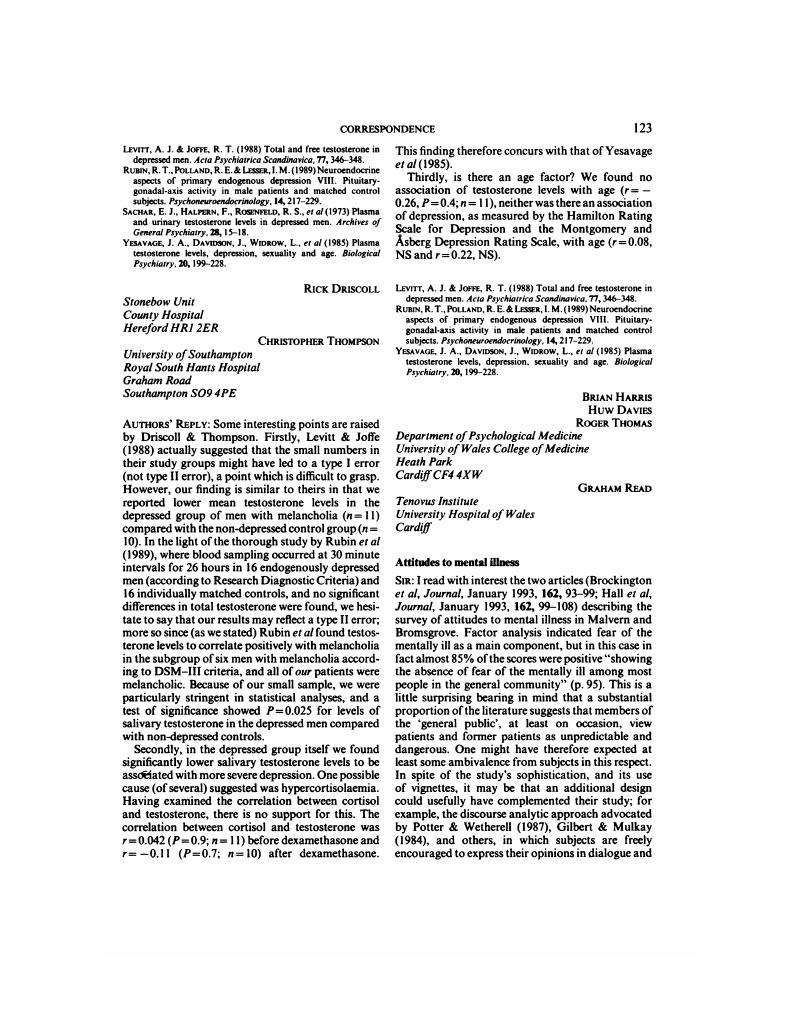No CrossRef data available.
Article contents
Authors' Reply
Published online by Cambridge University Press: 02 January 2018
Abstract
An abstract is not available for this content so a preview has been provided. Please use the Get access link above for information on how to access this content.

- Type
- Columns
- Information
- Copyright
- Copyright © The Royal College of Psychiatrists
References
Levitt, A. J. & Joffe, R. T. (1988) Total and free testosterone in depressed men. Acta Psychiatrica Scandinavica, 77, 346–348.Google Scholar
Rubin, R. T., Polland, R. E. & Lesser, I. M. (1989) Neuroendocrine aspects of primary endogenous depression VIII. Pituitary-gonadal-axis activity in male patients and matched control subjects. Psychoneuroendocrinology, 14, 217–229.Google Scholar
Yesavage, J. A., Davidson, J., Widrow, L., et al (1985) Plasma testosterone levels, depression, sexuality and age. Biological Psychiatry, 20, 199–228.Google Scholar



eLetters
No eLetters have been published for this article.